Scotland’s Ecojet Signs For ZeroAvia Hydrogen-Electric Turboprop Engines
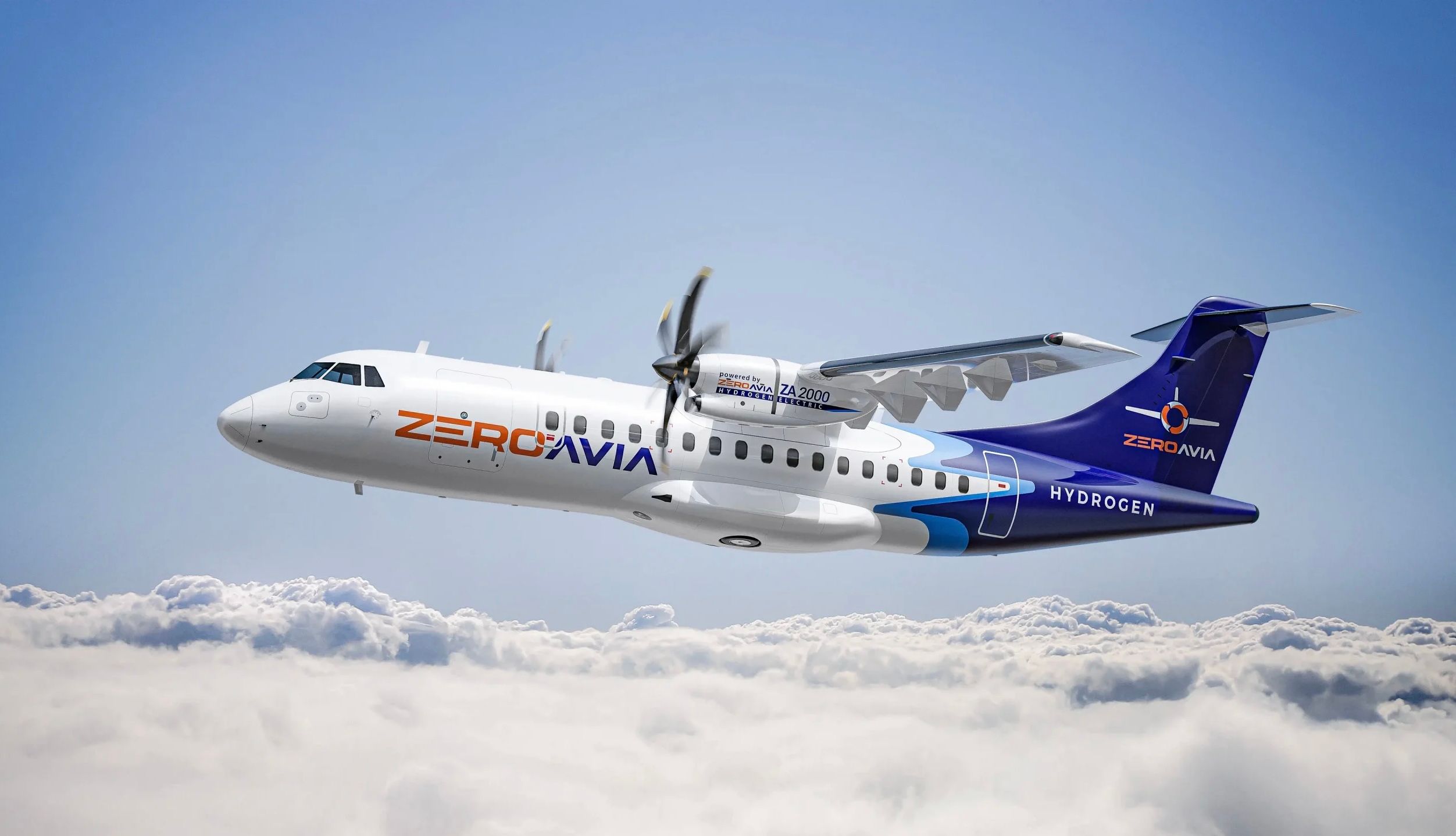
Summary
- Ecojet signed a deal at the Farnborough Airshow for hydrogen-electric engines to launch emission-free flights.
- ZeroAvia is working towards a clean flight future, developing hydrogen-electric engines that utilize hydrogen to power aircraft.
- ZeroAvia has made significant progress in testing hydrogen-electric engines, with major airlines showing interest in using zero-emission aircraft.
Not much usually happens on the last day of an airshow, when it is more about packing up than announcing the big deals that come out at the start of the week. However, as the Farnborough International Airshow drew to a close last Friday, zero-emissions innovator ZeroAvia signed an agreement with Ecojet to purchase 22 ZA2000 hydrogen-electric engines.
A deeper commitment
Ecojet is based in Edinburgh[1], Scotland and is aiming to become the world's first fully electric commercial airline, bringing zero-emission flying to the public without leaving behind any of the comfort and convenience passengers expect from air travel.
 Photo: ZeroAvia
Photo: ZeroAvia
It has been on the journey since July last year when Founder Dale Vance said the question of how to create sustainable air travel has plagued the green movement for decades. "Ecojet is by far the most significant step towards a solution to date.
The desire to travel is deeply etched into the human spirit, and flights free of CO2 emissions and powered by renewable energy will allow us to explore our incredible world without harming it for the first time." The strategy is to launch services later this year with conventionally powered aircraft to gain a license from the UK's Civil Aviation Authority and secure routes, starting with an Edinburgh to Southampton service. Ecojet said it will launch with a 19-seat and a 70-seat turboprop, which will be retrofitted with the ZeroAvia hydrogen-electric engines[2] when they are certified by the CAA, projected to be in late 2025.
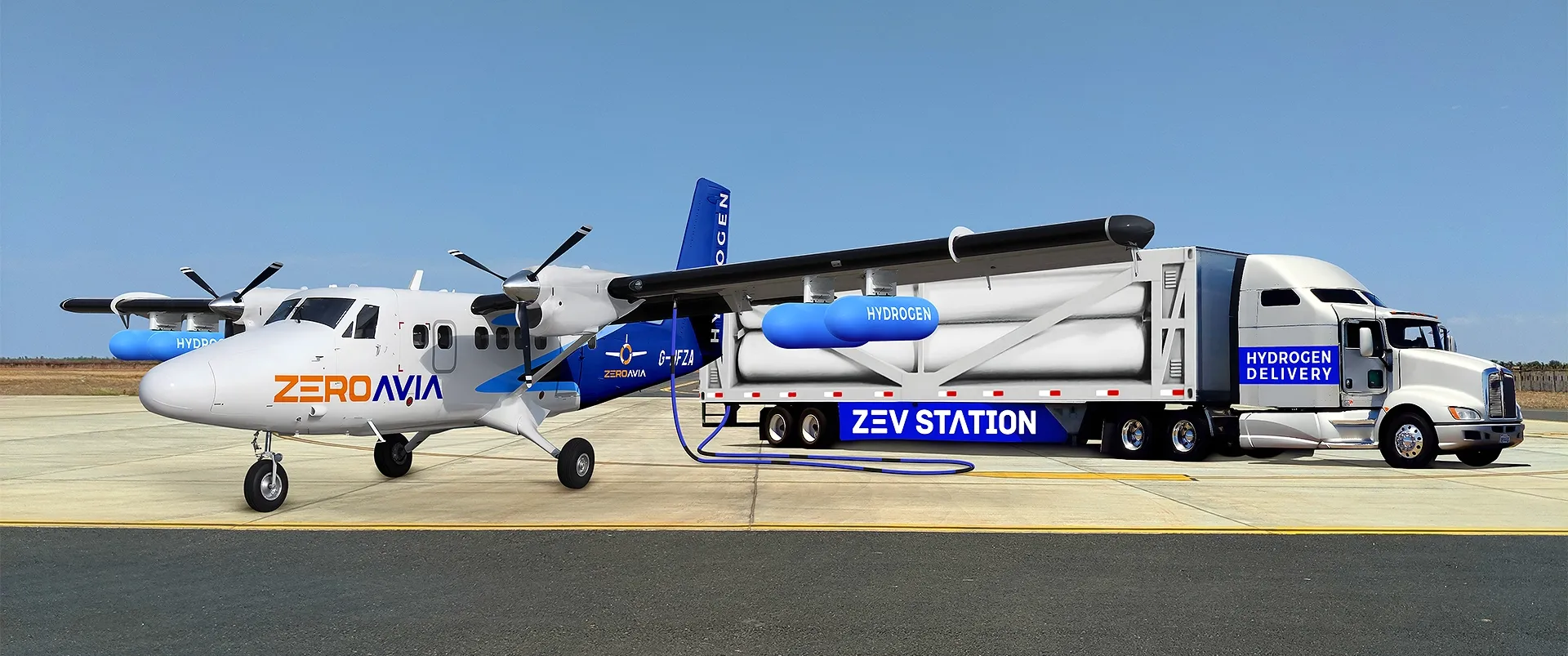 Photo: ZeroAvia / ZEV Stations
Photo: ZeroAvia / ZEV Stations
The agreement signed last week involves the purchase of 22 ZA2000 ZeroAvia hydrogen-electric engines, with options for 40 more.
It deepens the commitment announced in November 2023, with a deposit schedule that secures Ecojet some of the first production slots when certification is achieved.
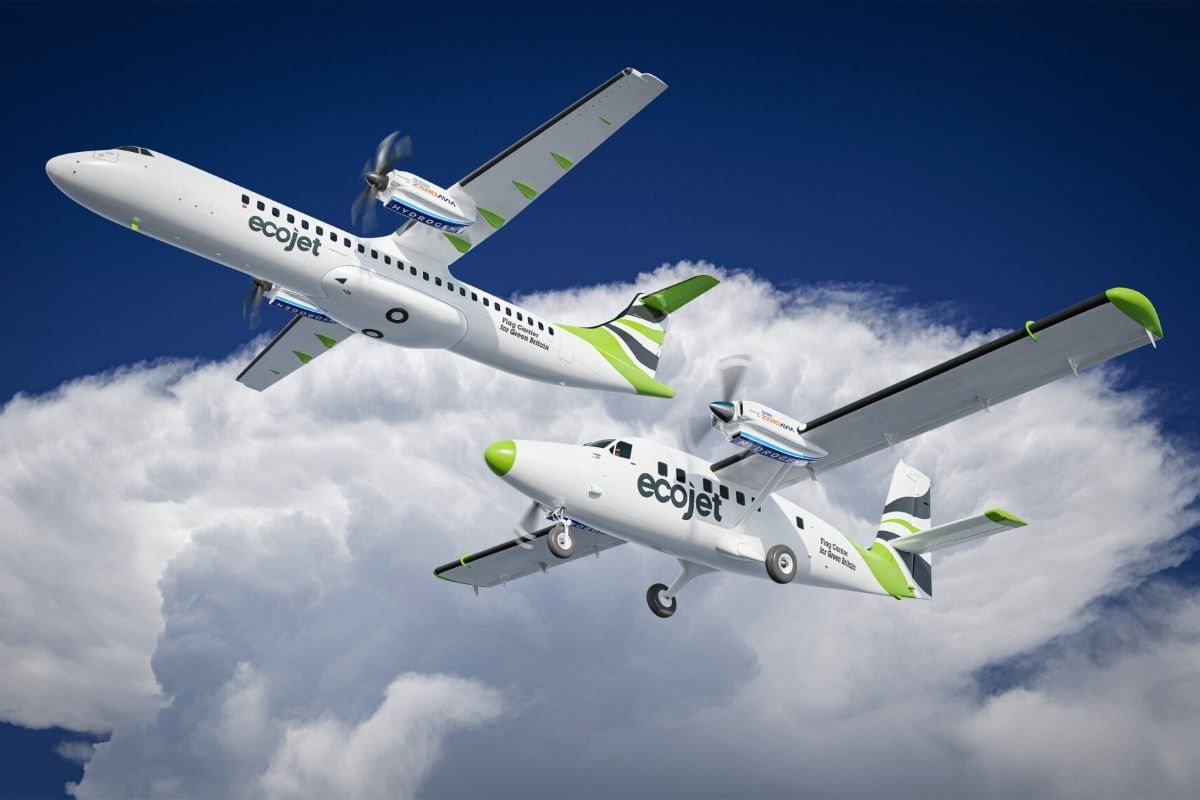 Related
Related
UK Airline Ecojet Signs Deal For 70 ZeroAvia Hydrogen-Electric Engines[3]
Ecojet has signed an order for 70 ZeroAvia ZA600 engines as it moves forward with its zero-emission airline business plan. Ecojet will start its emission-free flying journey[4] with the ZeroAvia ZA600 engine for up to 20-seat airplanes, while the ZA2000 will support aircraft in the 40-80 seat range. Vance said that Ecojet is on a mission to make net-zero, emission-free travel possible for the first time, adding:
"We've moved one step closer by signing an agreement to purchase 22 hydrogen-electric engines from ZeroAvia. This is nothing short of a revolution in aviation, the world has just moved a step closer towards a solution to sustainable air travel."
ZeroAvia is pushing ahead
ZeroAvia, founded in California and now with teams in Everett, Washington and the UK, is working to deliver a clean future for flight, primarily focusing on developing hydrogen-electric[5] (fuel-cell powered) engines. It has already submitted its smaller engine for certification and is working on the larger one ordered last week by Ecojet.
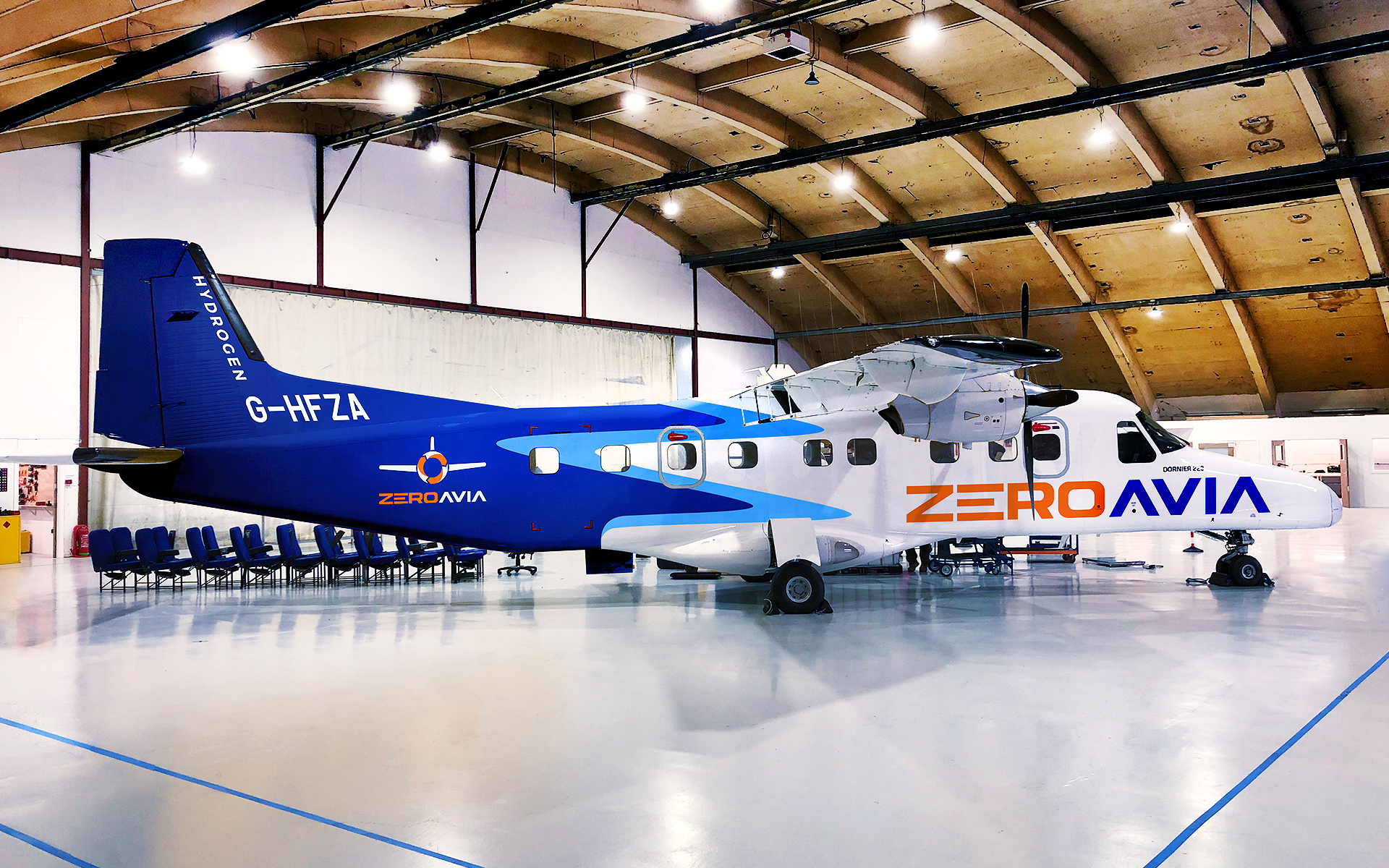 Photo: ZeroAvia
Photo: ZeroAvia
In simple terms, the engines work by using hydrogen to generate electricity that powers the propellers driving the aircraft.
ZeroAvia Founder and CEO Val Miftakhov said that Ecojet is already helping to make renewable power a reality in the UK. He added that hydrogen-electric aviation can be a big part of that journey, "opening up low-cost, efficient and safe true zero-emission transport between UK destinations like never before."
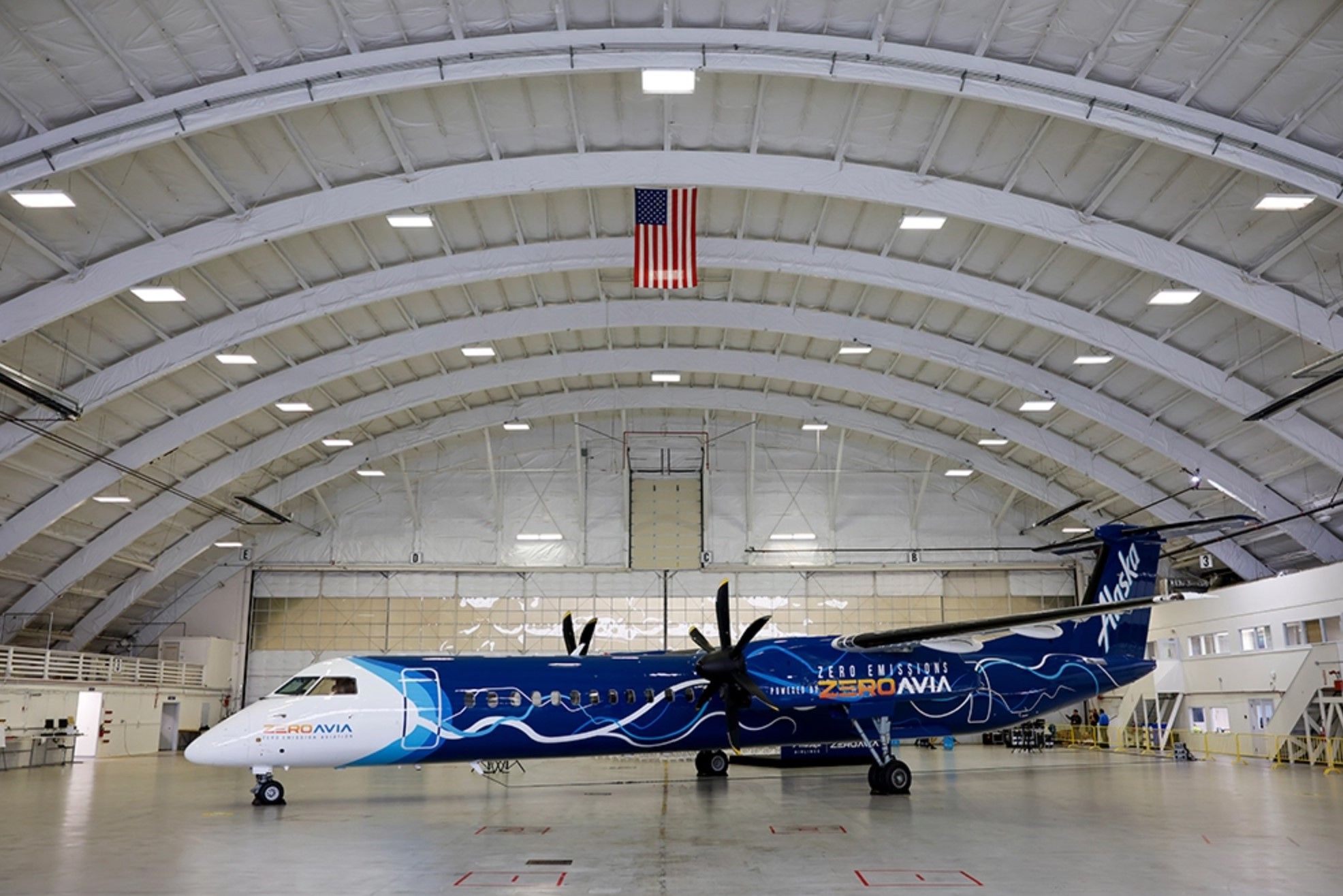 Related
Related
Paine Field At The Heart Of ZeroAvia Dash 8 Hydrogen Electric Project[6]
ZeroAvia's CEO believes that "before the end of the decade airlines could be flying zero-emission jets." ZeroAvia has been granted experimental certificates by the US Federal Aviation Administration[7] and the UK CAA to test its engines in three separate testbed aircraft.
On that journey, it has passed significant flight test milestones and secured orders for nearly 2,000 engines from several major airlines, with a future revenue potential of more than £10 billion.
ZeroAvia has extensively tested a ZA600 prototype engine aboard a Dornier 228[8] at its UK base and performed advanced ground tests in the US and UK for the critical parts of the ZA2000 system.
Those tests involved the cryogenic tanks or LH2 and proprietary high-temperature PEM fuel cell and electric propulsion systems that will support aircraft such as the ATR72 and De Havilland Dash 8 400 turboprops.
References
- ^ Ecojet is based in Edinburgh (simpleflying.com)
- ^ ZeroAvia hydrogen-electric engines (simpleflying.com)
- ^ UK Airline Ecojet Signs Deal For 70 ZeroAvia Hydrogen-Electric Engines (simpleflying.com)
- ^ emission-free flying journey (simpleflying.com)
- ^ hydrogen-electric (simpleflying.com)
- ^ Paine Field At The Heart Of ZeroAvia Dash 8 Hydrogen Electric Project (simpleflying.com)
- ^ Federal Aviation Administration (simpleflying.com)
- ^ Dornier 228 (simpleflying.com)